Graham Reid | | 4 min read
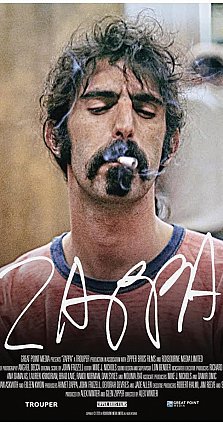
His late wife Gail ensured his vast catalogue was given reissue (more than 60 albums in his lifetime, more than 50 posthumous releases), his son Dweezil tours his father's music as Zappa Plays Zappa (in early 2018 he and his cracking band played Auckland), there have been books and academic treatises, university courses internationally and documentaries including Eat That Question of 2016 which on the Rialto channel in New Zealand a couple of years ago.
Given he hasn't been with us for almost three decades it's likely many have discovered him, and are still, in his absence.
And now comes the much vaunted Zappa documentary by Alex Winter (Bill in the Bill and Tedseries) who has been behind such credible features such as Deep Web and Trust Machine: The Story of Blockchain.
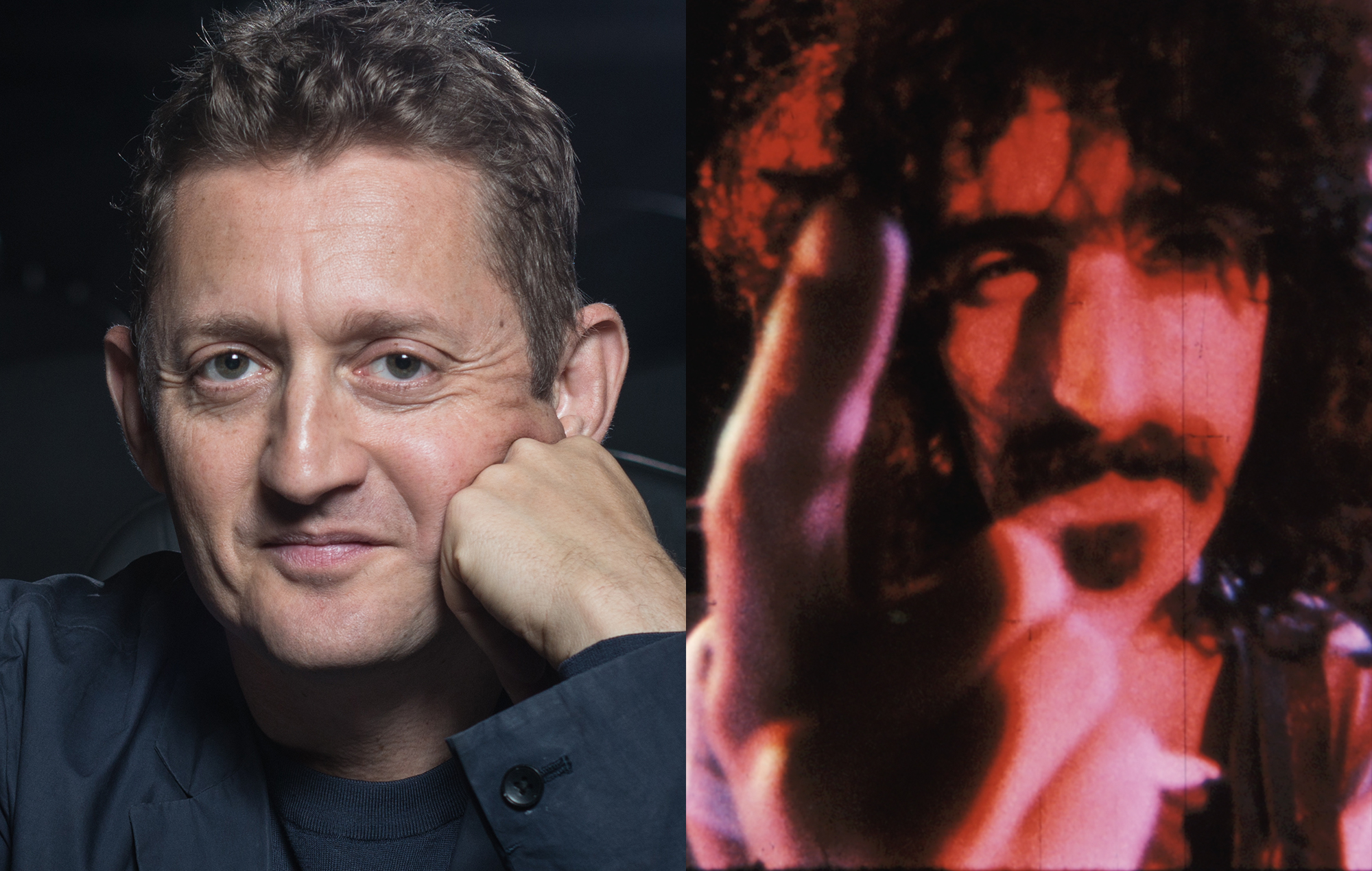 He may have been as dumb as a sack of spanners in the Bill and Ted films with Keanu Reeves, but he's a serious filmmaker . . . just as Zappa seemed an outlier and bizarre but was in possession of an agile and incisive intellect, and an unfettered musical talent which roamed freely from orchestral works to freak-out rock, doo-wop to jazz improvisation.
He may have been as dumb as a sack of spanners in the Bill and Ted films with Keanu Reeves, but he's a serious filmmaker . . . just as Zappa seemed an outlier and bizarre but was in possession of an agile and incisive intellect, and an unfettered musical talent which roamed freely from orchestral works to freak-out rock, doo-wop to jazz improvisation.
Not many figures in music would hire an orchestra at their own expense just so they could hear their own compositions.
By force of personality and his blunt articulateness, Zappa emerged as a counterculture figure – in his disavowal of hippie culture and drugs, counter to the counterculture in fact – and remained an outsider all his life.
Yet with a conventional haircut, in a suit and tie and carrying a briefcase he became the singular voice from the music industry to speak out against censorship at US Senate committee hearings in the early 80s
And in 1989 when the Velvet Revolution in Czechoslovakia succeeded and the Russian troops withdrew he was invited to play in Prague because his name had become synonymous with Western-style freedom and he briefly became that country's Cultural and Trade Representative to the United States.
Winter's two-hour Zappa documentary starts at his concert in Prague where he announces it was the first time he'd had a reason to play his guitar in three years. It would be his last recorded live performance on the instrument.
The film then folds back into an insightful, chronological account of Zappa in his own words, through interviews with many fellow musicians and wife Gail, and home movie footage alongside concert and studio footage from the family's enormous archive.
We can hear and see the artist as a child (interested in splicing film at age five), an asthmatic teenager growing up in a family which didn't like music much (making explosives , discovering the experimental music of Edgar Varese and rhythm and blues for himself) and the young man who became a self-taught American original, a perfectionist composer who – fleeing smalltown California for Los Angeles – formed the Mothers of Invention to hear the music he wrote.
Later he'd hire an orchestra at his own expense for the same reason.
Ironically in hippie-era LA they were disliked, he says, because “our market really wasn't the peace-love-hippie type people. Hippies did not like us because we didn't do the things they approved of”.
In New York where they played for five months, six nights a week (“people looked at us like we were from Venus”) the Mothers developed as a musical theatre of absurdity playing Zappa's increasingly complex music.
Zappa himself established himself as a musical director as much a performer and his singular focus is a theme in the Zappa documentary.
To outsiders, he increasingly seemed to become a set of contradictions (“consistent in his contradictions,” says keyboard player Ruth Underwood): the family man with a wife and four children who returned from tour with the clap; a writer whose his lyrics could sometimes be lewd, lascivious, juvenile, satirical or political . . .
He was serious composer but referred to himself as an entertainer.
Musicians were his often-inadequate tools (“workers,” says Howard Kaylan) and he could seem aloof, controlling and lacking in personal, emotional attachment.
Financial success was frequently elusive yet he never stopped working.
The scenes in his vast archive of tapes going back decades suggest there will be more Zappa music for some time to come.
“I really think Frank was afraid to have a hit record,” says Alice Cooper. “Frank could have written hit records all day, and he purposely sabotaged a lot of his records. That was interesting because everyone was going for the hit record but he never did.”
Musician Ian Underwood disagrees: Frank had no interest in having hit records.
Yet Valley Girl in 82 with his daughter Moon Unit was a hit.
Zappa was touring in Europe and didn't know about it but back home cynically enjoyed the interviews and photos shoots which resulted, then went back to writing for the classical ensemble Kronos Quartet among other projects.
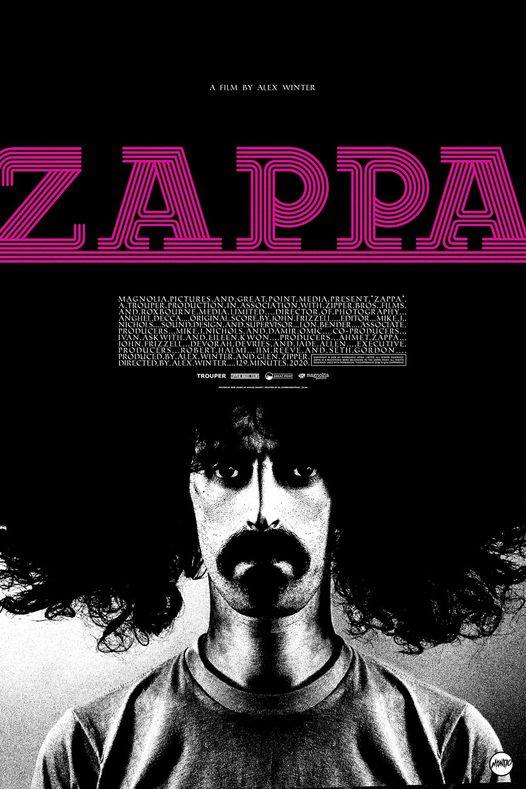 Zappa illustrates how Frank was within rock culture but never part of it. He despised its conformity and loathed the corporate-controlled business it became.
Zappa illustrates how Frank was within rock culture but never part of it. He despised its conformity and loathed the corporate-controlled business it became.
Although many will know the arc of Zappa's life, Zappa is an insightful gateway into a complex career about which he could be offhand.
“Basically my career has been, year after year, waiting to be disposed of,” he says.
Whatever it was Frank Zappa did, it rarely conformed to the musical trends of the period, which means he can be (re)discovered anew at any time.
Zappa is an insightful and easy gateway into a vast, diverse and extraordinarily complex career about which he could sometimes be almost dismissively offhand.
“My desires are simple, all I want to do is get a good performance and a recording of everything I ever wrote so I can hear it. And if anybody else wants to hear it that's great too.
“Sounds easy but it's really hard to do”
This documentary shows the lifelong struggle to realise those simple, difficult desires.
.
Zappa, directed by Alex Winter appears in selected cinemas from March 19.
.
There is a considerable amount about Frank Zappa at Elsewhere starting here.



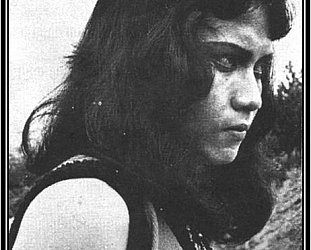
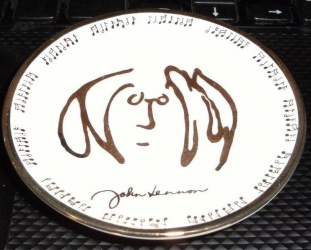
Peggy in America - Mar 25, 2021
'Taint too much fer me!! Keep'em comin' Mistah Graham!
Savepost a comment